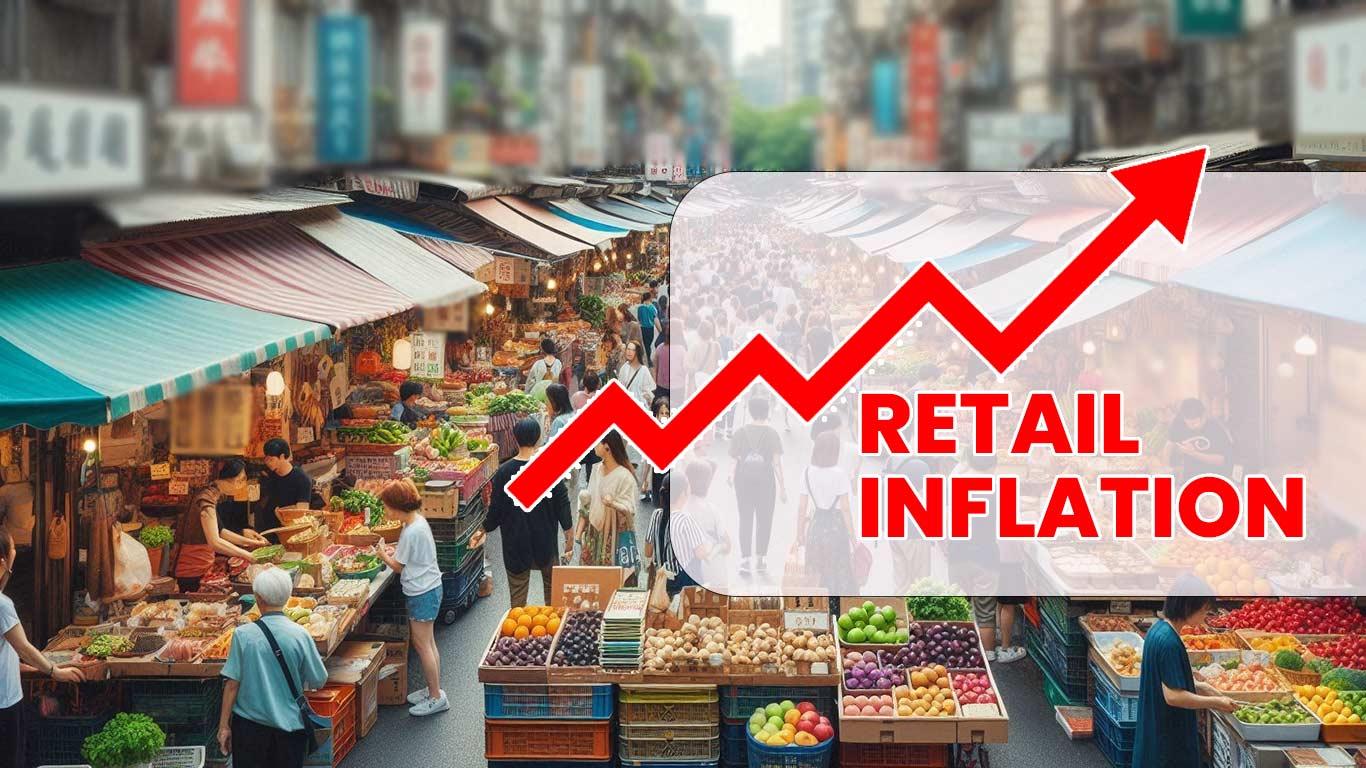
India's Retail Inflation Surges To 14-Month High
This surge breached the Reserve Bank of India's (RBI) upper tolerance limit for inflation, with rural areas experiencing a more severe rate of 6.7 per cent compared to urban areas at 5.6 per cent.
Food inflation hit particularly hard across the nation, with urban areas recording 11.1 per cent and rural regions seeing a 10.7 per cent increase. Vegetable prices emerged as a major concern, soaring to a 57-month peak of 42.2 per cent in October from 36 per cent in September.
Edible oil prices experienced their steepest rise in nearly two years, jumping to 9.5 per cent from 2.5 per cent in the previous month, while fruit prices increased by 8.4 per cent.
Personal care and effects costs rose sharply by 11 per cent, up from 9 per cent in September, adding to household expenses. While pulses inflation showed some relief, easing to 7.4 per cent after 17 months of double-digit increases, and spices prices decreased by 7 per cent, the overall impact on consumer spending remained significant.
Bank of Baroda's chief economist characterised the inflation figures as shocking, highlighting that food inflation has expanded to include oils, with cereals, pulses, fruits, and vegetables emerging as key problem areas.
The economist emphasised that while inflation might gradually recede for cereals and pulses, vegetable prices would take longer to stabilise.
The RBI's earlier projection of 4.8 per cent average inflation for Q3 2024-25 now faces challenges, as meeting this target would require inflation to moderate to approximately 4.1 per cent through November and December.
Core inflation, excluding food and energy prices, showed a slight increase from September's nine-month high of 3.8 per cent but remained below 4 per cent for the eleventh consecutive month.
Crisil's chief economist Dharmakirti Joshi attributed the surge in edible oil inflation to a 27 per cent rise in global prices, caused by supply disruptions in Southeast Asia.
Despite benign non-food inflation around 3 per cent, persistent food inflation concerns have maintained elevated headline inflation, potentially constraining monetary policy easing.
Joshi anticipates the RBI's Monetary Policy Committee may consider rate cuts toward the end of 2024-25, citing expected relief from food inflation due to healthy kharif sowing and incoming vegetable stocks.
The National Statistical Office confirmed that October's high food inflation primarily stemmed from increased prices in vegetables, fruits, and oils and fats, while noting significant declines in inflation for pulses, eggs, sugar, and spices.
Month-over-month data showed the Consumer Price Index rising by 1.3 per cent, with the Consumer Food Price Index increasing by 2.6 per cent across both rural and urban areas.
(KNN Bureau)
Legal Disclaimer:
MENAFN provides the
information “as is” without warranty of any kind. We do not accept
any responsibility or liability for the accuracy, content, images,
videos, licenses, completeness, legality, or reliability of the information
contained in this article. If you have any complaints or copyright
issues related to this article, kindly contact the provider above.















Comments
No comment